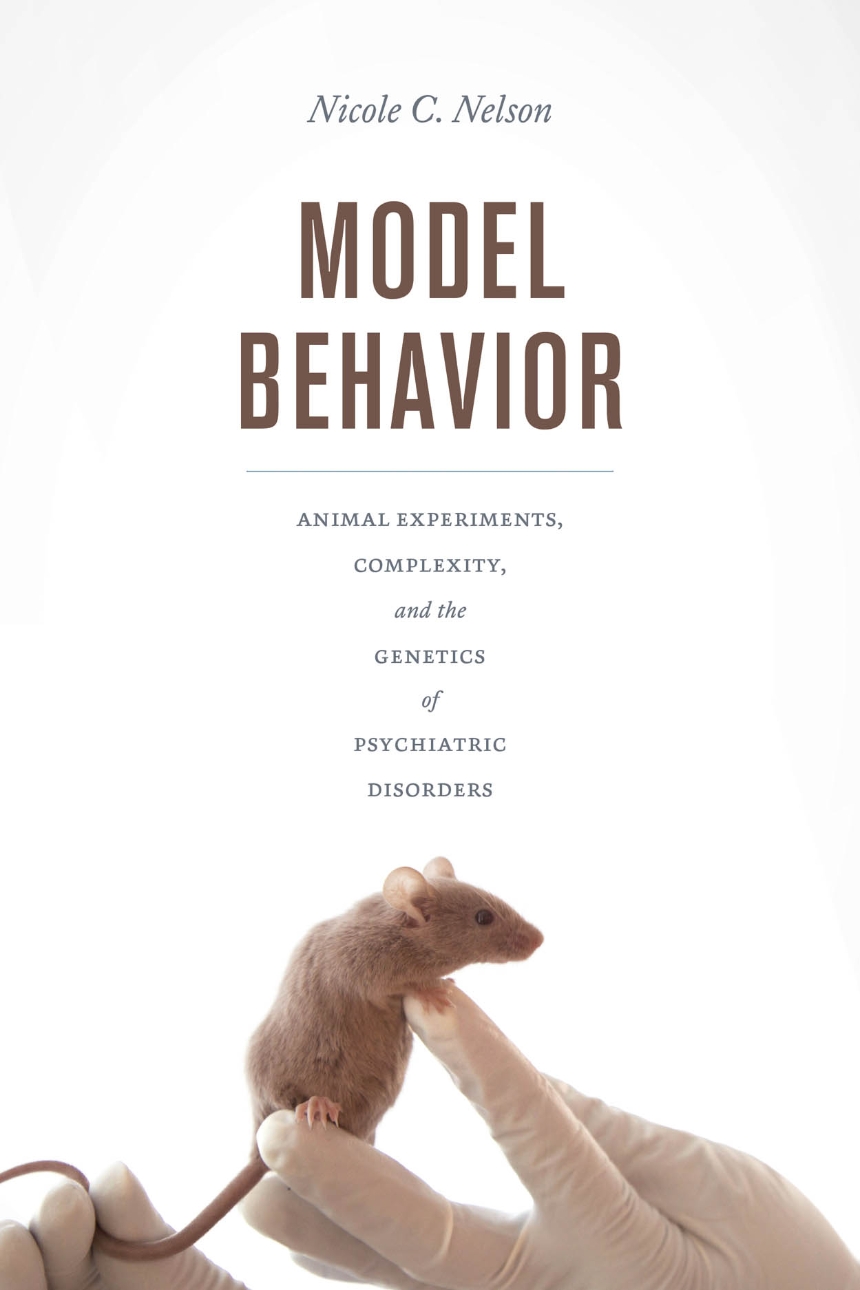Model Behavior
Animal Experiments, Complexity, and the Genetics of Psychiatric Disorders
9780226546087
9780226545929
9780226546117
Model Behavior
Animal Experiments, Complexity, and the Genetics of Psychiatric Disorders
Mice are used as model organisms across a wide range of fields in science today—but it is far from obvious how studying a mouse in a maze can help us understand human problems like alcoholism or anxiety. How do scientists convince funders, fellow scientists, the general public, and even themselves that animal experiments are a good way of producing knowledge about the genetics of human behavior? In Model Behavior, Nicole C. Nelson takes us inside an animal behavior genetics laboratory to examine how scientists create and manage the foundational knowledge of their field.
Behavior genetics is a particularly challenging field for making a clear-cut case that mouse experiments work, because researchers believe that both the phenomena they are studying and the animal models they are using are complex. These assumptions of complexity change the nature of what laboratory work produces. Whereas historical and ethnographic studies traditionally portray the laboratory as a place where scientists control, simplify, and stabilize nature in the service of producing durable facts, the laboratory that emerges from Nelson’s extensive interviews and fieldwork is a place where stable findings are always just out of reach. The ongoing work of managing precarious experimental systems means that researchers learn as much—if not more—about the impact of the environment on behavior as they do about genetics. Model Behavior offers a compelling portrait of life in a twenty-first-century laboratory, where partial, provisional answers to complex scientific questions are increasingly the norm.
Behavior genetics is a particularly challenging field for making a clear-cut case that mouse experiments work, because researchers believe that both the phenomena they are studying and the animal models they are using are complex. These assumptions of complexity change the nature of what laboratory work produces. Whereas historical and ethnographic studies traditionally portray the laboratory as a place where scientists control, simplify, and stabilize nature in the service of producing durable facts, the laboratory that emerges from Nelson’s extensive interviews and fieldwork is a place where stable findings are always just out of reach. The ongoing work of managing precarious experimental systems means that researchers learn as much—if not more—about the impact of the environment on behavior as they do about genetics. Model Behavior offers a compelling portrait of life in a twenty-first-century laboratory, where partial, provisional answers to complex scientific questions are increasingly the norm.
272 pages | 3 halftones, 3 line drawings, 1 table | 6 x 9 | © 2018
Biological Sciences: Behavioral Biology
Psychology: Animal Behavior
Sociology: Theory and Sociology of Knowledge
Reviews
Table of Contents
Introduction: A Furry, One-Ounce Human?
1 Containing Complexities in the Animal Behavior Genetics Laboratory
2 Animal Behavior Genetics, the Past and the Future
3 Building Epistemic Scaffolds for Modeling Work
4 Epistemic By-Products: Learning about Environments while Studying Genetics
5 Understanding Binge Drinking
6 Leaving the Laboratory
Conclusion: An Expanded Vocabulary for the Laboratory
1 Containing Complexities in the Animal Behavior Genetics Laboratory
2 Animal Behavior Genetics, the Past and the Future
3 Building Epistemic Scaffolds for Modeling Work
4 Epistemic By-Products: Learning about Environments while Studying Genetics
5 Understanding Binge Drinking
6 Leaving the Laboratory
Conclusion: An Expanded Vocabulary for the Laboratory
Acknowledgments
Appendix
Notes
Bibliography
Appendix
Notes
Bibliography
Awards
International Society for the History of Behavioral and Social Sciences: Cheiron Book Prize
Finalist
Forum for the History of Science in America: Philip J. Pauly Book Prize
Short Listed
